In their eagerness to cash in on consumer demand for eco-friendly products and services, many companies are calling their goods “green” despite their decidedly un-environmental qualities. When you shop, these 5 steps can help you distinguish what’s green from what’s being greenwashed.
1) Read the label. Look for meaningful claims, not words like “natural” or “planet friendly” that aren’t backed up by standards or third-party verification (see below). When it comes to cleansers and other household goods, avoid products labeled “caution,” “warning,” “danger,” and “poison,” all of which indicate the item is hazardous to you and the environment. Ignore products that are inherently contradictory, like “organic cigarettes,” or “most energy-efficient Hummer.” Leave goods boasting irrelevant claims – like something is “CFC-free,” true but misleading since CFCs have been banned since the 1980s.
2) Look for third-party verification. In the absence of universal sustainable standards, if a company says its product is good for the earth, your first question should be, “Who else says so?” Reliable eco claims are backed up by an independent institution or nonprofit organization that has investigated the manufacturer’s claim so you don’t have to. Look for labels from groups like Forest Stewardship Council, Energy Star and the U.S. Department of Agriculture/Organic.
3) Choose fewer ingredients. A long list of ingredients often indicates the presence of questionable chemicals that may be harmful to you or the environment. This is especially true for personal care products, food, and cleansers. Simplify what you buy. Needless to say, buying less is the greenest option of all.
4) Pick less packaging. Choose goods that come wrapped as simply as possible. For starters, buy in bulk, favor concentrates, and pick products in containers you can easily recycle (hint: glass, cans, paper and cardboard are more easily recycled than plastic). Carting home your packages in your own bags helps reduce packaging, too.
5) Buy local. Avoid the higher energy costs involved in transporting goods long distances. Supporting local farmers and businesses also increases the likelihood that U.S. environmental and health laws and regulations will be followed.
Bottom Line: Ignore boasts that a product is eco-chic, earth-safe, or planet-neutral. Follow the steps above to ensure that when you buy green it is green.
Want more greenwashing tips? Visit Green Home Huddle.


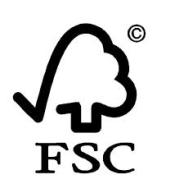
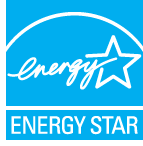
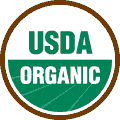




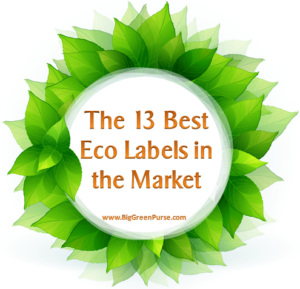





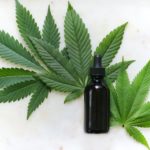

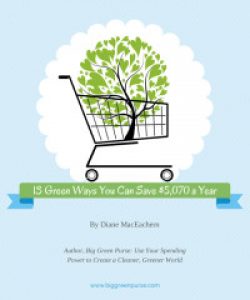


4 thoughts on “How to Separate “Green” from “Greenwashing” When You Shop”
In terms of third party verification — I have compiled a list of organic and natural certifications to look for when shopping for things like skin care, body care, makeup. It includes USDA and other organizations around the world. You can see the list here: http://www.organicmakeupandskincare.com/blog/2008/04/is-your-organic-makeup-really-organic-certificates-listed/
But you are right, there are a lot of steps we need to take to avoid greenwashing. Too many manufacturers view the green movement as a way to make a buck, and claim things without actually delivering. It is so frustrating to always be on guard, when you can’t even trust the “natural” label on your kid’s shampoo.
Cheers,
Julena
PS: This is a fantastic and extremely useful blog, by the way!
Re the oversized shopping bags: are they really 3x as big? How do you manage to carry a bag that big and that full? Just wondering.
And yes, GoFrostFire, we’re a long way off from being where we want to be – but much farther along than we were even a couple of years ago. Let’s all keep pushing!
Thanks, everyone
Sadly the third party certifications are cashing in on greenwashing as well. Once a certification catches on amongst large manufacturers that have huge marketing budgets all the others producers that may be doing nothing wrong, need to pay the certification’s fee to have their label or they can’t compete.
Take Greengaurd, possibly one of the biggest abstract certifications on the market, but also one of the biggest and most abused. All the product has to do is not off gas, it doesn’t matter how much pollution the manufactures create in the process of making it, and it can get Greengaurd certified. Manufactures have to pay thousands of dollars for these certifications. Thats why you will find it on numerous home building products that use petroleum based materials to bind, seal or form their finished material. In the end there are 0 VOC’s, but are petroleum based resins and plastics really sustainable?
All the big companies that use resins and petroleum in their products will pony up the dough to have the label, but numerous competitors in the same product arena that use inert materials will have to pay the thousands upon thousands of dollars each year to have the same label. This inevitably raises the cost of sustainable products for the consumer.
A lot of labels are good, but take a minute to ask the sales person what the lable means and then find out what the finished product is made of. The internet is a powerful information tool and any green product worth it’s salt should proudly present what it is made of on it’s website.
Green Business Certifications or Awards are valuable as well because they evaluate the business as a whole, usually starting with manufacturing. This is a nice guarentee that the finished product came from a sustainable process.
Hope this will be helpful in the future.
Great comment. Nothing will ever be perfect…but things would be much better if the federal government mandated standards and monitored their abuse. It’s something to raise in the Obama Administration.